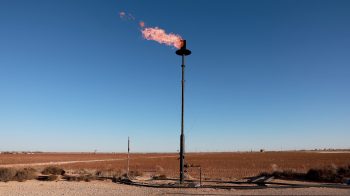Russia’s next target is its grain industry
TEXT OF STORY
Kai Ryssdal: The economic focus of the Russian offensive in Georgia has been energy. As Professor Goldman just said, Russia’s the world’s biggest producer of oil and natural gas. And it wants to add another weapon to its arsenal of natural resources: food. From the European Desk, Marketplace’s Stephen Beard reports the Kremlin wants to take direct control over half the country’s grain exports. .
Stephen Beard: The plan is to group all the Russian government’s grain terminals, storage depots and mills into one operation. Sounds, on the face of it, innocent enough. A drive for greater efficiency. That’s not how some observers see it. Ariel Cohen is with the Washington think tank the Heritage Foundation.
Ariel Cohen: They want to do to grain what they’re doing to natural gas. So Russia is trying to control the supply and eventually the markets of its grain.
Cohen claims this is all part of Putin’s Grand Plan to claw back the superpower status lost when the Soviet Union collapsed. He says, by extending state control over Russia’s natural resources, the Kremlin hopes to wield more power on the world stage and in the global economy.
Cohen: They know they cannot compete in biotech, they cannot compete in micro-electronics. So instead Russia is focussing on state control of the commodities, and grain is not an exception.
Like oil and natural gas, grain has soared in price over the past year. But while Russia is an energy superpower, it’s not the top dog in grain. It’s only the fifth largest exporter — way, way behind the U.S.
So how much grain power could the Kremlin wield? Food security expert Martin Caraher says quite a lot. If the market was already tight, and the Russian government suddenly withheld its grain, it could push up world prices.
Martin Caraher: Potentially, they could have a huge influence on the world market. And that would give them a real political position of power.
Beard: You think that, in a sense, we ought to be slightly alarmed by this development in Moscow?
Caraher: I think we should be looking at it.
Russia aims to grab a much bigger slice of the global grain trade. The Agriculture Minister says within five years, Russia could be one of the top three exporters. Agricultural economist Sean Rickard agrees the country could become a really major force in the world grain market.
Sean Rickard: Russia, according to the United Nations, has perhaps 37 million acres of land that could be brought into cereals production.
But Ricard, for one, does’t see anything sinister in Russia centralizing control over its grain exports.
Rickard: Most countries want to have some control over exports of food ensure that those exports are turned back towards the domestic population in times of crisis.
Over at the Heritage Foundation in Washington, Ariel Cohen is far more suspicious of Russia’s motives.
Ariel Cohen: What could be happening here is Russia will try to create a consortium that may include Ukraine and Kazakhstan just as they’re creating a global, OPEC-like natural gas consortium. And therefore, I think both the Europeans and the Americans should be very worried.
No word yet from the Europeans. But an unnamed source within the U.S. government has described the Russian move as “a giant step back to the Soviet Era.”
In London, this is Stephen Beard for Marketplace.
There’s a lot happening in the world. Through it all, Marketplace is here for you.
You rely on Marketplace to break down the world’s events and tell you how it affects you in a fact-based, approachable way. We rely on your financial support to keep making that possible.
Your donation today powers the independent journalism that you rely on. For just $5/month, you can help sustain Marketplace so we can keep reporting on the things that matter to you.


















